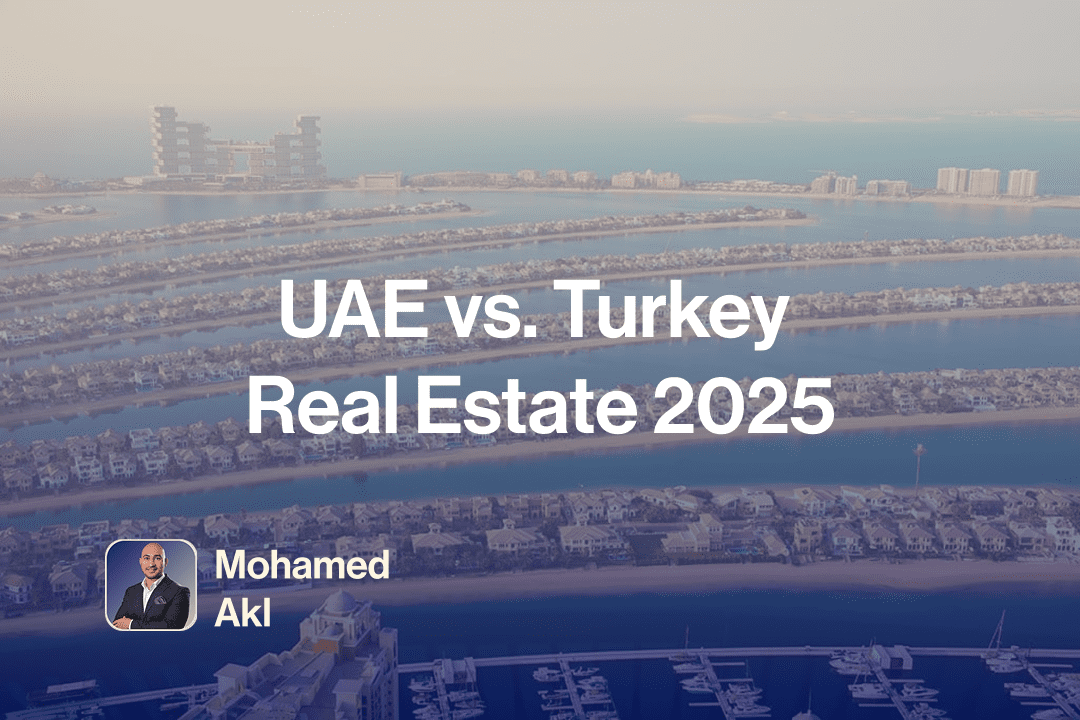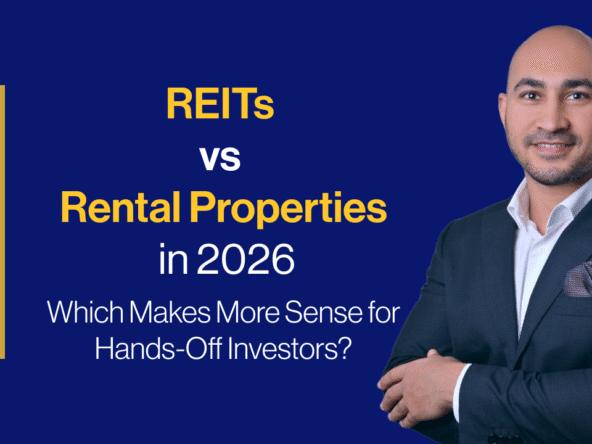Meta Title: UAE vs. Turkey Real Estate 2025: 7 Critical Insights Smart Investors Must Know | Mohamed Akl
Meta Description: Investing in real estate: UAE vs. Turkey — Mohamed Akl compares tourism, ROI, regulations, and stability. Discover why the UAE leads in safety, transparency, and growth for 2025.
Introduction: UAE vs. Turkey – Which Real Estate Market Wins in 2025?
Global investors are constantly looking for stable and high-performing property markets. Two destinations consistently top the conversation:
The United Arab Emirates (UAE) and Turkey.
Both offer strategic locations, strong tourism appeal, and attractive pricing. But when it comes to long-term safety, rental yields, transparency, and capital growth — the UAE clearly leads.
Here’s a 7-point strategic comparison by Mohamed Akl.
1. Tourism Performance: Global Magnet vs. Regional Appeal
- UAE: Dubai welcomed 17M visitors in 2023 and nearly 10M in H1 2025. With year-round events like Expo 2020, COP28, Art Dubai, UFC, and world-class shopping festivals, the UAE outperforms Paris, Singapore, and New York in global rankings.
- Turkey: Over 50M tourists annually, led by Istanbul and Antalya. Strong, but highly seasonal. Political unrest, currency instability, and shifting short-term rental laws reduce long-term consistency.
Advantage: UAE — year-round demand + global appeal.
2. Economic Stability and Growth
- UAE: Over 70% of GDP is non-oil, fueled by logistics, AI, finance, and tourism. The AED is pegged to USD, ensuring currency stability. Long-term plans (Dubai 2040, Abu Dhabi 2030) keep real estate demand rising.
- Turkey: The lira lost 80% of its value in 5 years, inflation above 40%, and dependency on short-term inflows create risks.
Advantage: UAE — currency strength + predictable macro growth.
Read 7 Proven Steps to Building a Wealth First Real Estate
3. Real Estate Regulations & Ownership
- UAE:
- 100% foreign freehold ownership in designated zones
- RERA oversight for buyer protection
- Escrow accounts for off-plan security
- Zero income or capital gains tax
- Turkey:
- Foreigners restricted in some zones (military/agricultural)
- Higher title transfer fees
- Notary registration required, less transparency
Advantage: UAE — transparent, global-standard regulation.

Get Your 20-Min Free Consultation
Discuss your goals with Mohamed Akl and explore strategic real estate opportunities tailored to your investment profile.
4. Rental Income and ROI
- UAE: 6%–9% rental yields in Dubai, tax-free, with strong demand from expats + tourists. Short-term rentals in Palm Jumeirah and Downtown deliver higher returns.
- Turkey: Yields 6%–8% on paper, but inflation, taxation, and currency volatility erode net returns.
Advantage: UAE — reliable passive income + no tax.
5. Exit Options and Capital Appreciation
- UAE: Liquidity is high. Properties in Downtown, Business Bay, Palm Jumeirah, Dubai Hills appreciate 7–18% annually. Resale is fast and global.
- Turkey: Appreciation possible, but selling can be slow. Currency conversion and fund repatriation challenges exist.
Advantage: UAE — liquid resale + tax-free capital gains.
6. Citizenship & Residency Options
- UAE: Property investors can secure 2–10 year Golden Visas starting from AED 750,000 — with family sponsorship.
- Turkey: Citizenship via $400,000+ property investment. Attractive, but under scrutiny and subject to political changes.
Advantage: UAE — flexible, stable residency system.
7. Market Risk & Transparency
- UAE: Strong governance, transparent data, global investor confidence.
- Turkey: Exposure to geopolitical risks, inflation volatility, and legal uncertainties.
Advantage: UAE — safer, more resilient market.
Read 8 Powerful Passive Income Strategies
Final Verdict: UAE Leads for Global Property Investors
If you seek:
✔ Stable rental income
✔ Transparent regulations
✔ Capital appreciation + liquidity
✔ Tax-free returns
The UAE (especially Dubai & Abu Dhabi) is the superior choice.
Turkey remains a beautiful lifestyle destination, but currency risks and policy instability make it less ideal for global investors focused on long-term safety.
The UAE sets a global benchmark in real estate transparency, profitability, and investor protection
🔗 Global External Reference: Financial Times – Dubai Property Market Boom
Frequently Asked Questions (FAQs)
Which offers higher rental yields, UAE or Turkey
UAE yields average 6%–9% tax-free, while Turkey’s 6%–8% is eroded by inflation and currency risks.
Is Turkey still attractive for real estate investment
Yes, for lifestyle buyers. But for long-term investors, volatility reduces attractiveness.
Can foreigners buy property in both countries
Yes. UAE allows 100% foreign freehold in designated zones, while Turkey has restrictions.
Which market has stronger capital appreciation
Dubai’s prime areas deliver 7%–18% annual gains, while Turkey’s growth is slower and less liquid.
Does the UAE offer citizenship like Turkey
No, but the Golden Visa offers long-term residency, stability, and family sponsorship.






 100% Free Consultation
100% Free Consultation